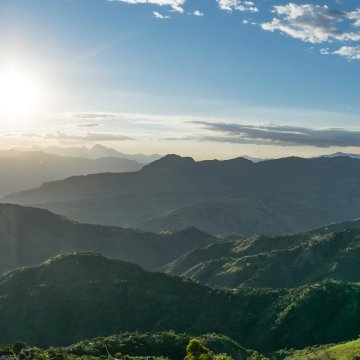- About
- Topics
- Picks
- Audio
- Story
- In-Depth
- Opinion
- News
- Donate
- Signup for our newsletterOur Editors' Best Picks.Send
Read, Debate: Engage.
| topic: | Peace and Reconciliation |
|---|---|
| located: | Colombia |
| editor: | Ellen Nemitz |
For decades, the world has been fighting, without success, against the production and trade of illegal drugs. Colombia, the world’s largest producer of cocaine, is now aiming to change this. Recently sworn in as president of the country, Gustavo Petro had already publicly called the ‘war on drugs’ (a program first implemented by US president Richard Nixon in 1972) a failed policy, a "hypocrisy" that "only kills and imprisons ordinary Colombians while politicians get rich." Now, as he leads the country, he seeks to end this farcical war and implement enactable and environmentally-just policies.
Petro has been raising his voice to spark the transition from a strategy of forced eradication of coca crops - mainly by fumigation - to a plan of voluntary replacement of these lands for the cultivation of other food products, by implementing agro-industrialisation processes of new crops and land substitutions.
The goal of strengthening the National Plan for the Substitution of Illicit Crops (PNIS, in Spanish) comes right when the United Nations Office on Drugs and Crime (UNODC) reported the largest area cultivating coca in Colombia: from 2020 to 2021, the land used for coca crops had increased by 43 percent, from 143,000 to 204,000 hectares.
Last September, during the 2022 UN General Assembly, Petro sustained that Colombia is one of the most biodiverse nations on the planet, but is also thrown into violence and environmental destruction led by, according to him, the persecution of a "sacred Incan plant" and the endless appetite for oil and coal feeding consumerism that wipes out the forests.
"Reducing drug consumption does not demand wars, weapons. It demands [that] we all build a better society, more supportive, more affectionate, in which the intensity of life saves from addictions and new slaveries," he claimed.
According to the UNODC, however, coca cultivation threatens biodiversity since half of the crops are located in special management zones and forest reserve areas. Additionally, the expansion of the cultivated areas to indigenous lands and "the different impacts caused by this illegal economy in the cosmovision and institutions of indigenous peoples" concern institutions and specialists.
While some peasants investing in growing coca leaves face unexplained difficulties in selling their products, which can potentially lead to a change of focus to other food crops, Petro embraces the mission of ending the decades of guerrillas and armed conflicts in Colombia by seeking peace deals that had previously failed.
Notwithstanding the huge challenges to implement ideal drug policies for people and the environment, several researchers and specialists agree that a society without any use of narcotics is unlikely, so that pursuing alternatives, like Petro is doing in Colombia, would be the best way of finding a balance for human rights and the environment.
"Even if the road to a new drug policy respecting the human rights of farmers, producers and consumers will be neither easy nor quick," say Catalina Niño and Oliver Dalichau, from the Friedrich-Ebert-Stiftung's Regional Security Project, "the fact that the discussion started by Petro in Colombia is moving in this direction makes the importance and scope of his words explicit: only through clear state regulation (and not through legalisation!) can the power of criminal drug trafficking organisations be limited, the violence associated with drug trafficking be reduced, and problematic drug use placed at the centre of public health."
Photo by Andres F. Uran

